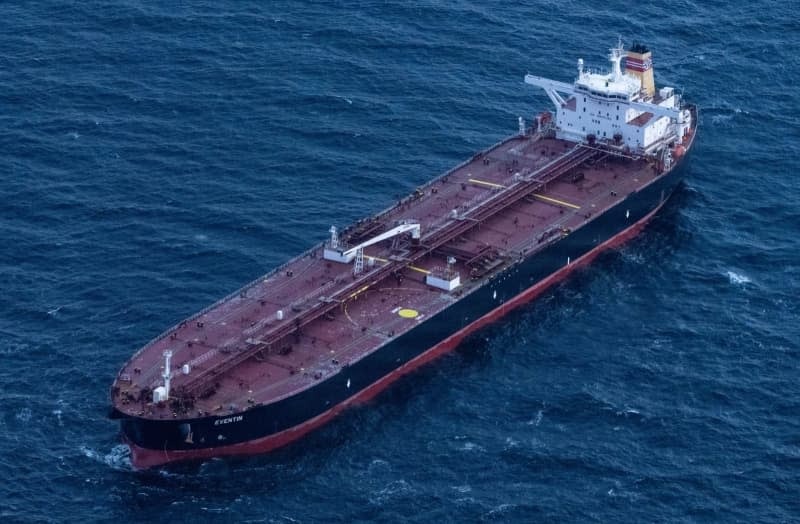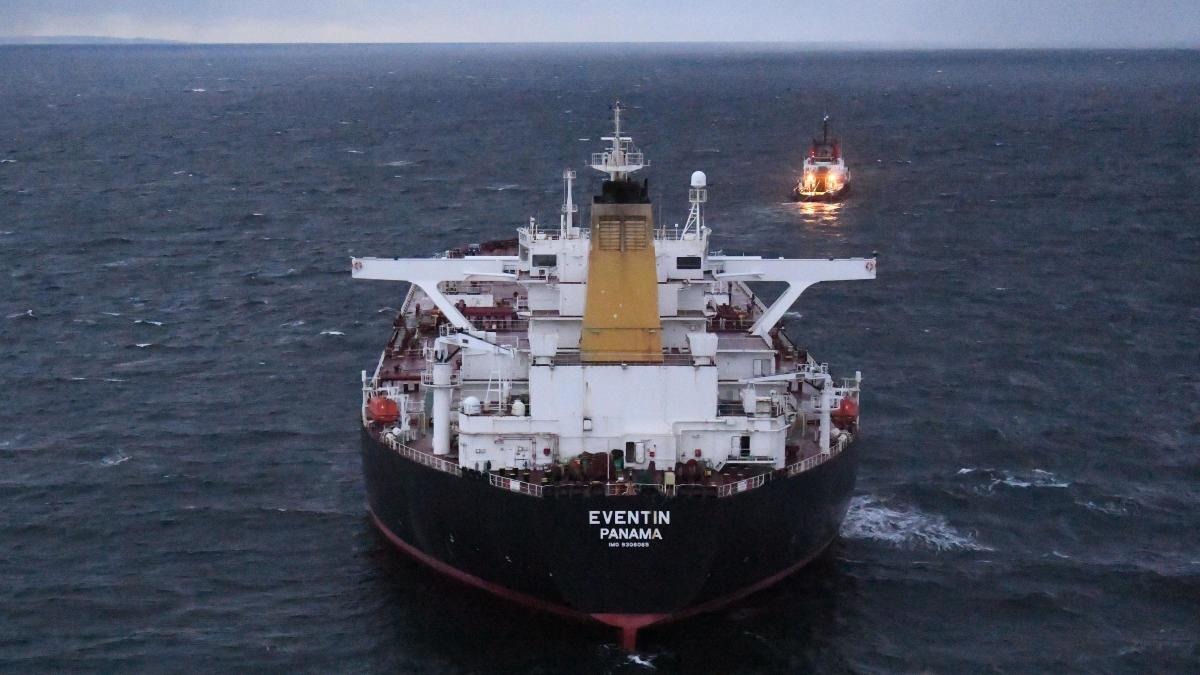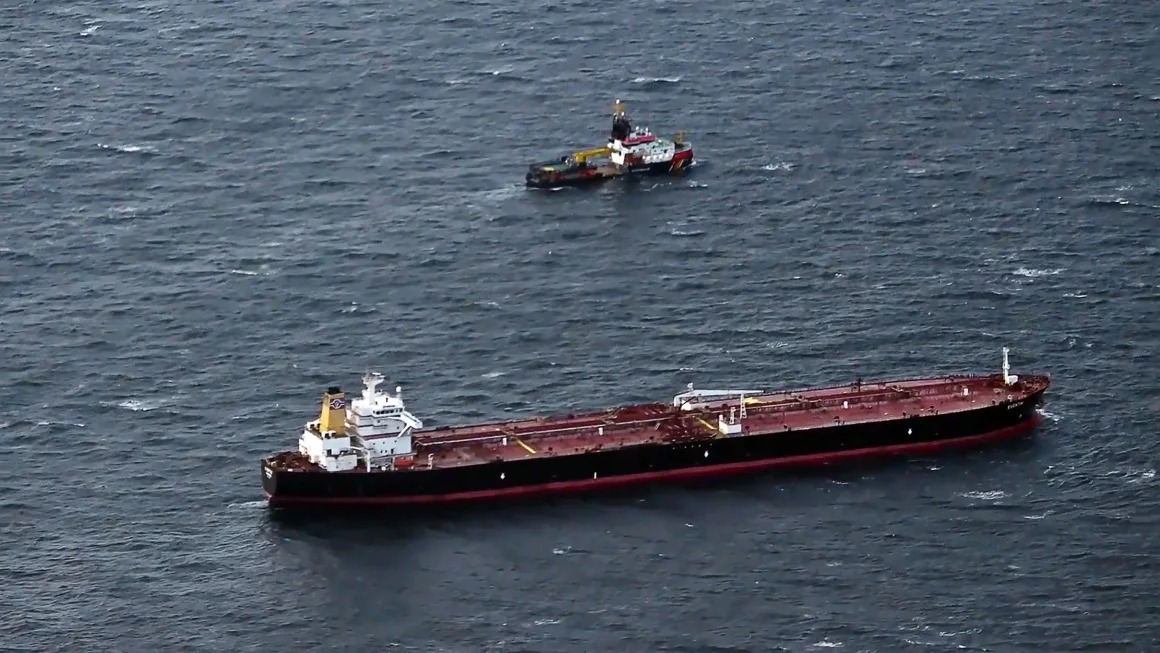Russia’s Shadow FleetGermany has stepped in to secure the Eventin, a disabled Russian oil tanker believed to be part of “Russia’s shadow fleet.” The tanker, which lost power in the Baltic Sea near Rügen island, underscores the risks posed by Moscow’s reliance on aging vessels to finance its war in Ukraine. This article explores the details of the incident, the shadow fleet’s role, and its global implications.
Russia’s Shadow Fleet: A Growing Concern

What is Russia’s Shadow Fleet?
“Russia’s shadow fleet” refers to a network of aging, often Soviet-era tankers used by Moscow to transport oil and circumvent Western sanctions. These vessels operate under flags of convenience from countries outside the G7 sanctions regime, allowing Russia to export oil despite restrictions imposed after its invasion of Ukraine.
Since the G7 nations capped Russian oil prices at $60 per barrel in December 2022, the Kremlin has relied heavily on this shadow fleet to sustain its economy. This fleet includes vessels that are uninsured, poorly maintained, and often several decades old, posing significant environmental and safety risks.
How the Shadow Fleet Supports Russia’s Economy
The shadow fleet plays a vital role in Russia’s ability to fund its military operations. By bypassing sanctions and selling oil at higher prices to non-compliant buyers, Moscow generates billions of dollars each month. This revenue is used to finance its war effort, including missiles, drones, and other weapons systems.
The Centre for Research on Energy and Clean Air (CREA) reported that 234 of the 420 vessels exporting Russian crude oil and oil products last month were part of the shadow fleet, with 30% of these vessels over 20 years old.
The Eventin Incident: A Spotlight on Russia’s Shadow Fleet

A Disabled Tanker in the Baltic Sea
The Eventin, a Panamanian-flagged oil tanker, was carrying nearly 100,000 tons of oil believed to originate from Russia when it lost power near the German island of Rügen. The tanker was en route from Russia to Egypt, according to MarineTraffic, a maritime monitoring group.
German authorities, including the Central Command for Maritime Emergencies (CCME), deployed three tugboats to tow the 274-meter-long vessel to safety. However, stormy weather, including winds and waves over 8 feet, has slowed the towing process.
Environmental and Security Risks
The Eventin incident highlights the environmental and security risks associated with Russia’s shadow fleet. While German authorities have reported no oil leaks so far, the tanker’s massive cargo poses a significant threat to the Baltic Sea.
Ukrainian President Volodymyr Zelensky described the Eventin as an “oil bomb that, fortunately, didn’t detonate.” He criticized Russia’s use of aging tankers, accusing Moscow of jeopardizing the environment for economic and military gains:
“Every day, Russia bombards Ukraine, and it finances its missiles, strike drones, and guided bombs, in part, with profits from its tanker fleet.”
Western Sanctions and the Shadow Fleet
Impact of Sanctions on Russia’s Shadow Fleet
Western sanctions targeting Russia’s energy sector aim to cut off the revenue Moscow uses to fund its war in Ukraine. The Biden administration recently imposed its toughest sanctions yet, targeting nearly 200 vessels believed to be part of the shadow fleet.
A senior U.S. official stated:
“We expect our actions to cost Russia upwards of billions of dollars per month.”
These sanctions build on the G7 price cap, which limits the price of Russian oil to $60 per barrel. Shipping, insurance, and other services are denied to buyers who pay above the cap, forcing Russia to rely on its shadow fleet to continue oil exports.
Russia’s Evasion Tactics
To circumvent sanctions, Russia uses uninsured or minimally insured tankers flagged in countries outside the G7 framework. These vessels often operate without proper maintenance, making them prone to accidents and environmental disasters.
The shadow fleet’s operations have already caused significant harm. In December 2024, two Russian tankers, both nearly 50 years old, spilled thousands of tons of fuel into the Black Sea after wrecking off the coast of occupied Crimea. Similar incidents raise alarms about the growing risks posed by these aging vessels.
The Global Implications of Russia’s Shadow Fleet
Environmental Hazards
The Eventin incident is a stark reminder of the environmental risks posed by Russia’s shadow fleet. Tankers operating without proper maintenance or oversight are ticking time bombs, capable of causing catastrophic oil spills that could devastate marine ecosystems and coastal economies.
The Baltic Sea and Black Sea regions are particularly vulnerable due to their proximity to Russia’s oil export routes. A single spill from a large tanker like the Eventin could have long-lasting environmental consequences, further exacerbating tensions between Russia and its neighbors.
Geopolitical and Economic Ramifications
Russia’s shadow fleet is not just an environmental concern—it also has significant geopolitical and economic implications. By circumventing sanctions, Russia undermines the effectiveness of international efforts to pressure the Kremlin and sustain the global rules-based order.
Additionally, the shadow fleet contributes to rising tensions between Russia and Western nations. Incidents involving these tankers, such as damage to undersea cables or oil spills, could escalate conflicts and strain diplomatic relations.
Germany’s Role in Securing the Eventin

Immediate Response
Germany has taken swift action to address the Eventin incident, deploying resources to tow the tanker to safety. The operation underscores Germany’s commitment to ensuring maritime security and protecting the Baltic Sea from potential environmental disasters.
Broader Implications
German Foreign Minister Annalena Baerbock used the Eventin incident to highlight the dangers posed by Russia’s shadow fleet. She called the fleet a symbol of Russia’s disregard for environmental and regional security:
“With the unscrupulous use of a fleet of rusting tankers, Putin not only circumvents sanctions but also deliberately accepts risks to European security.”
The Path Forward
Strengthening Sanctions Enforcement
The Eventin incident underscores the need for stronger enforcement of existing sanctions and international regulations. Targeting Russia’s shadow fleet more effectively could reduce the Kremlin’s ability to generate revenue from oil exports, limiting its capacity to finance military operations.
Enhancing Environmental Protections
International organizations and coastal states must work together to improve monitoring and oversight of aging tankers. Strengthening environmental protections and imposing stricter penalties for violations could help mitigate the risks posed by vessels in Russia’s shadow fleet.
Conclusion
The Eventin tanker’s drift in the Baltic Sea serves as a stark reminder of the environmental, security, and geopolitical risks posed by Russia’s shadow fleet. As Western nations ramp up sanctions and Germany